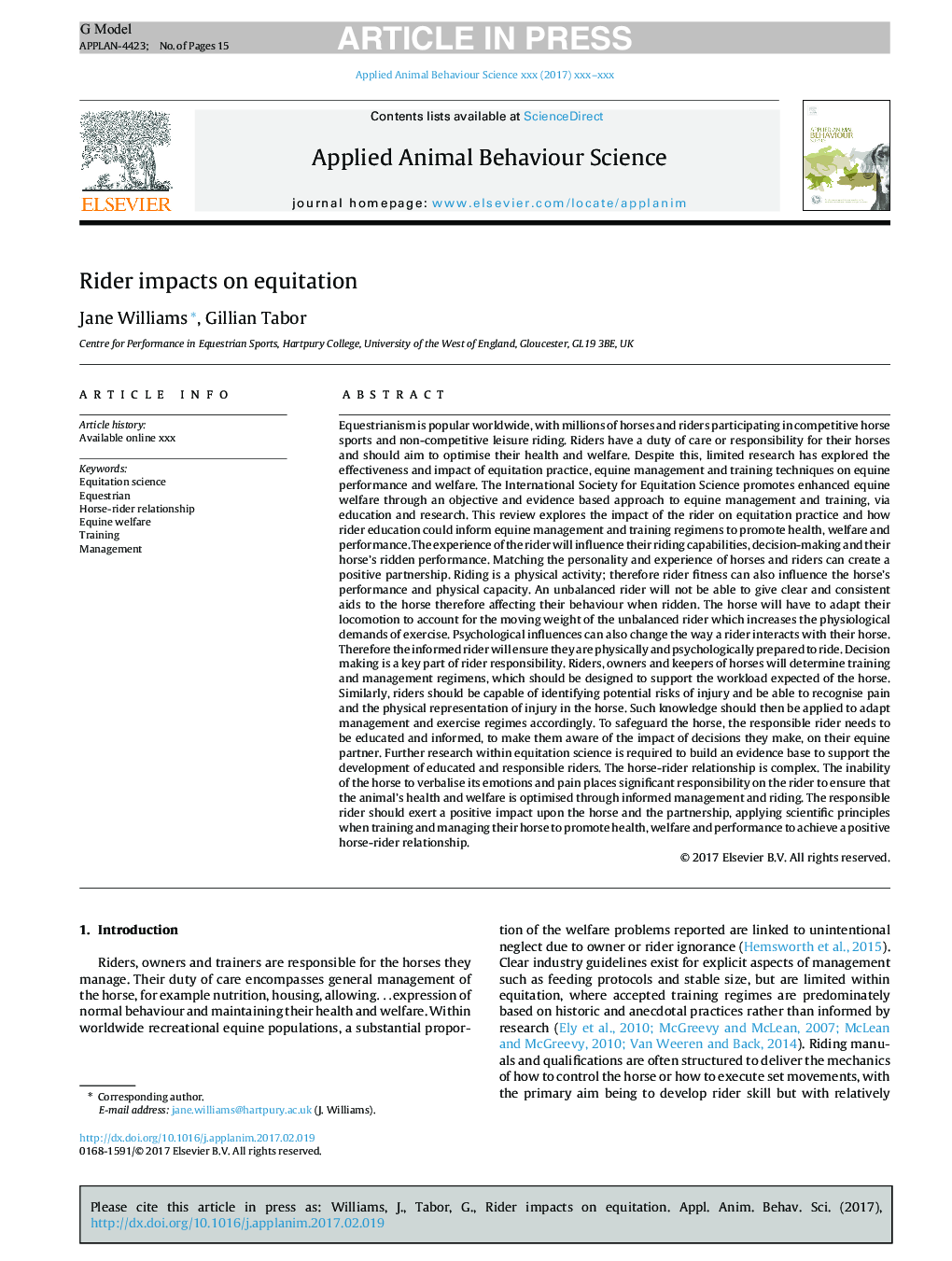| Article ID | Journal | Published Year | Pages | File Type |
|---|---|---|---|---|
| 5763436 | Applied Animal Behaviour Science | 2017 | 15 Pages |
Abstract
Equestrianism is popular worldwide, with millions of horses and riders participating in competitive horse sports and non-competitive leisure riding. Riders have a duty of care or responsibility for their horses and should aim to optimise their health and welfare. Despite this, limited research has explored the effectiveness and impact of equitation practice, equine management and training techniques on equine performance and welfare. The International Society for Equitation Science promotes enhanced equine welfare through an objective and evidence based approach to equine management and training, via education and research. This review explores the impact of the rider on equitation practice and how rider education could inform equine management and training regimens to promote health, welfare and performance. The experience of the rider will influence their riding capabilities, decision-making and their horse's ridden performance. Matching the personality and experience of horses and riders can create a positive partnership. Riding is a physical activity; therefore rider fitness can also influence the horse's performance and physical capacity. An unbalanced rider will not be able to give clear and consistent aids to the horse therefore affecting their behaviour when ridden. The horse will have to adapt their locomotion to account for the moving weight of the unbalanced rider which increases the physiological demands of exercise. Psychological influences can also change the way a rider interacts with their horse. Therefore the informed rider will ensure they are physically and psychologically prepared to ride. Decision making is a key part of rider responsibility. Riders, owners and keepers of horses will determine training and management regimens, which should be designed to support the workload expected of the horse. Similarly, riders should be capable of identifying potential risks of injury and be able to recognise pain and the physical representation of injury in the horse. Such knowledge should then be applied to adapt management and exercise regimes accordingly. To safeguard the horse, the responsible rider needs to be educated and informed, to make them aware of the impact of decisions they make, on their equine partner. Further research within equitation science is required to build an evidence base to support the development of educated and responsible riders. The horse-rider relationship is complex. The inability of the horse to verbalise its emotions and pain places significant responsibility on the rider to ensure that the animal's health and welfare is optimised through informed management and riding. The responsible rider should exert a positive impact upon the horse and the partnership, applying scientific principles when training and managing their horse to promote health, welfare and performance to achieve a positive horse-rider relationship.
Related Topics
Life Sciences
Agricultural and Biological Sciences
Animal Science and Zoology
Authors
Jane Williams, Gillian Tabor,
